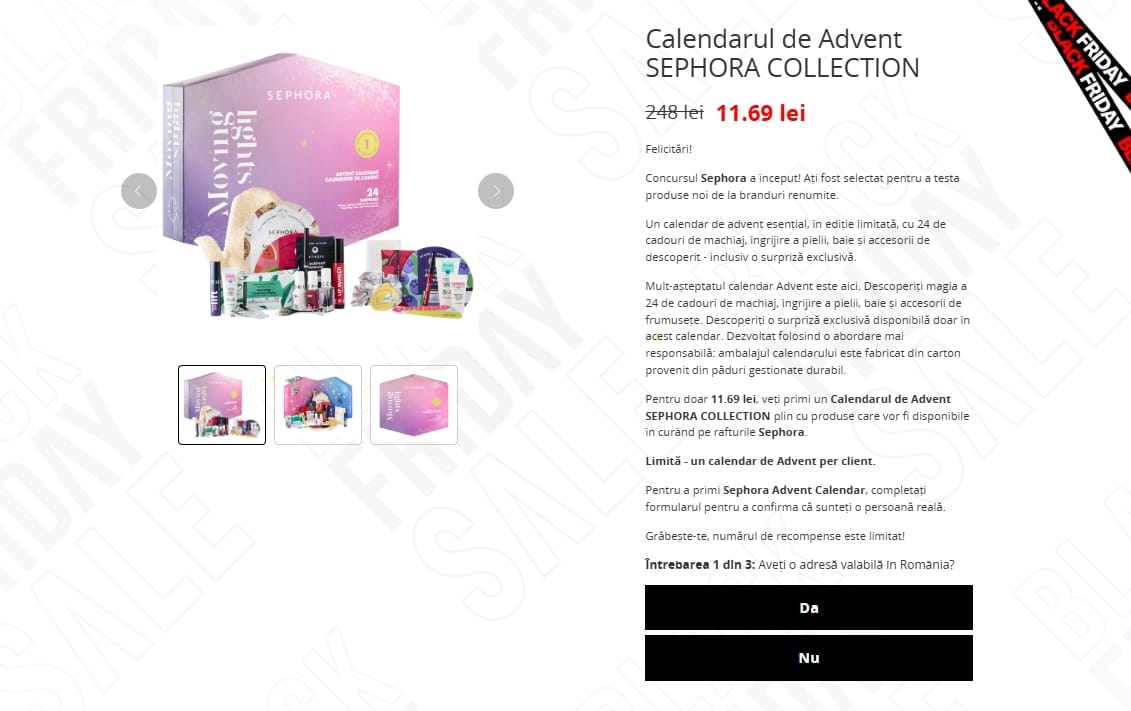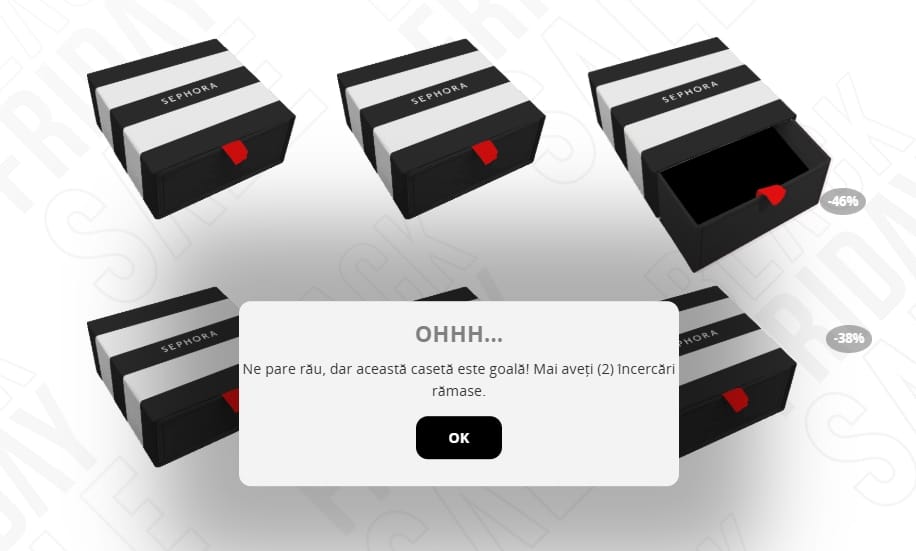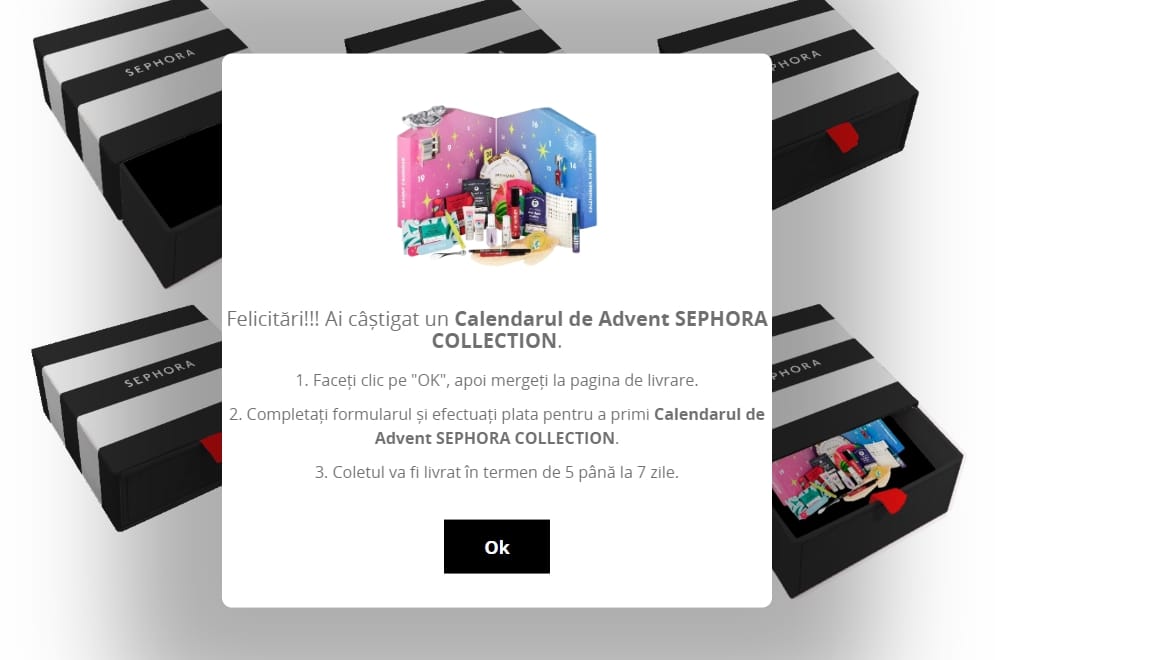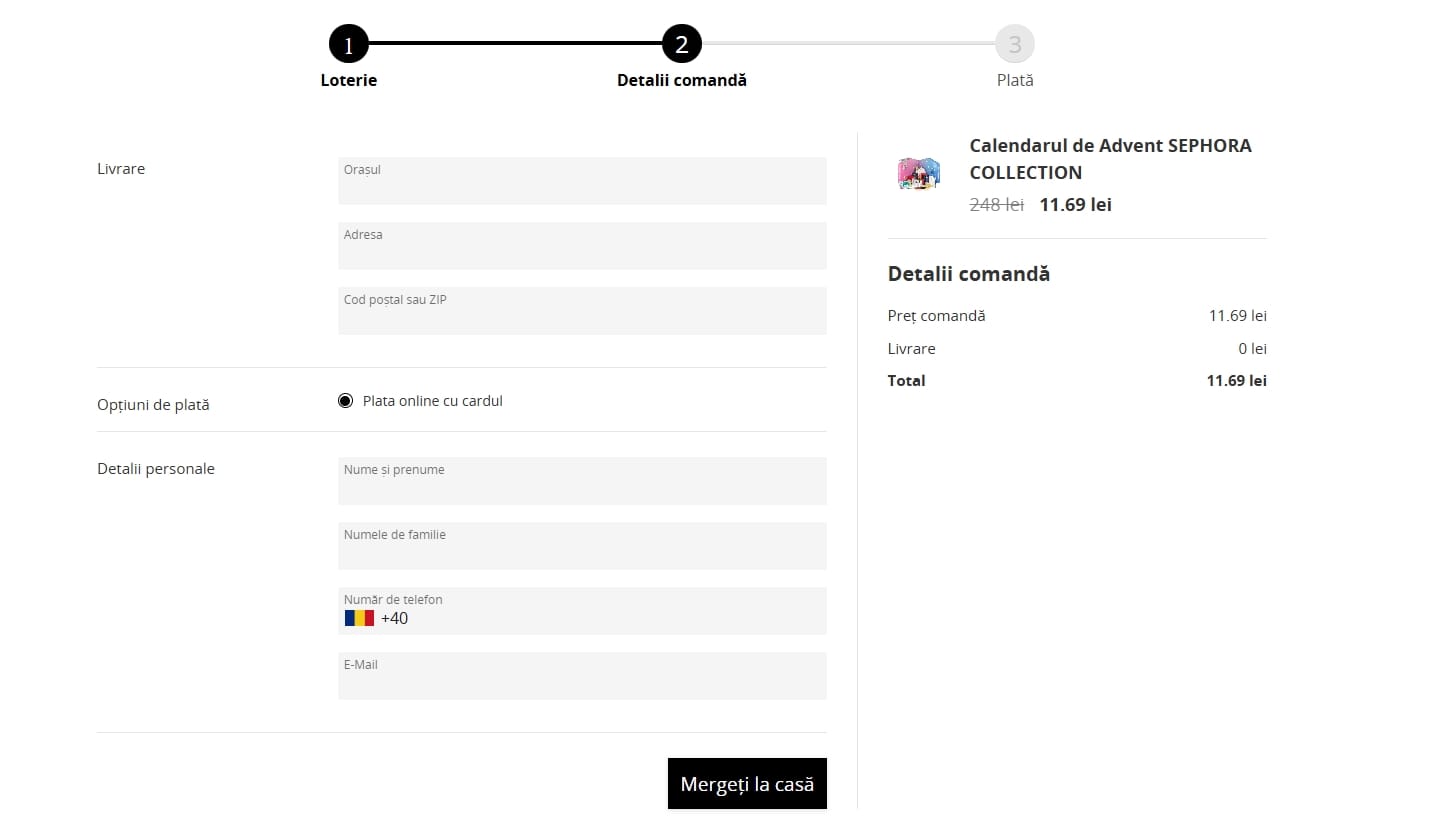Scam Alert: Fake Sephora Advent Calendar Ads Flood Social Media in the Holiday Season

Awareness is a powerful tool in staying safe from scams. At Bitdefender, we’re committed to helping you and your family navigate the digital landscape safely, especially during high-risk times like the holiday season.
Note: All product and company names mentioned herein are for identification purposes only and are the property of, and may be trademarks of, their respective owners.
One such scam currently making waves involves fake Sephora advent calendar ads on social media, targeting consumers with offers that seem too good to be true.
These fraudulent ads, which began appearing in late November, target women aged 18 to 50 with promises of deeply discounted or nearly-free beauty products.
It’s important to note that these fake ads, websites, and surveys are not associated with Sephora in any way. Scammers deliberately impersonate well-known companies to deceive consumers, damaging both the company's reputation and the trust of its customers.
How the Scam Works
Although many of these fraudulent ads have been removed or the links have stopped working, several variations of the scam are still active on Facebook.
The scam is designed to look legitimate, leveraging professional visuals, fake promotions, and enticing stories to draw in unsuspecting users.
Step 1: The Fake Sponsored Ads
The fake ads feature irresistible offers, such as:
- "Unbelievable Discounts:
"Girls, this is not a dream! Only for 24 hours! Sephora is offering the 2024 Advent Calendar for only 43 PLN instead of 460 PLN! I can't believe my eyes! I've already placed an order and I'm holding this wonder in my hands to share this amazing news with you."
- "Logistics Storyline:
"I found an Advent calendar from Sephora for only 9.95 RON! Recently, I read in the comments about holiday discounts that Sephora is running a campaign on the occasion of the opening of a new warehouse, to test logistics before the holidays. In this context, they are offering the Advent calendar at a symbolic price."
- "Loyalty Program Lie:
"My sister works at Sephora and she told me that many people don’t know they can get an Advent Calendar with beauty products as part of the special Sephora loyalty program by filling out a short survey."
These ads are carefully localized, appearing in the native language of the targeted audience, further enhancing their credibility. Upon clicking the ad, users are directed to a fake website impersonating Sephora.
Step 2: The Fake Survey
The scam continues with a quick survey that looks like a legitimate Sephora promotional questionnaire. Users are asked three seemingly harmless questions:
- Is your location in Romania?
- Have you participated in a Sephora promotion in the last 90 days?
- Choose your skin type to customize your box with suitable cosmetic products.

Notably, the fake webpage still displays a "Black Friday" banner, suggesting that scammers are either inattentive or in a rush to maximize their profits during the holiday season.
After answering these questions, users are directed to a mini-game featuring Sephora-branded gift boxes. They are given three attempts to “win,” but our testing suggests users always “win” on the second try, receiving the following message:
"Congratulations!!! You’ve won a Sephora Advent Calendar Collection."


Step 3: The Payment Request
Once users “win” the fake advent calendar, they are guided through the following steps:
- Click "OK," then go to the delivery page.
- Fill out the form and make the payment to receive the Sephora Advent Calendar Collection.
- The package will be delivered within 5 to 7 days.
On the delivery page, users are asked to provide sensitive personal information, including their full name, address, phone number, email, and credit card details. This step is where scammers collect valuable data for financial theft and identity fraud.

Scammers localize their fake ads, surveys, and webpages to match the language and cultural context of their targets. This tailored approach increases the believability of the scam and makes it harder for users to detect fraud.
How to Stay Safe
To avoid falling victim to fake ads like these, follow these tips:
- Verify the source: Always cross-check offers by visiting the official website, app or verified social media pages of the retailer.
- Be skeptical of unrealistic deals: The promise of products worth hundreds of dollars for just 2 euros is a clear indication of a scam.
- Check the URL: Be cautious with links in ads or comments, especially those promising discounts or free products. Double check the URL before engaging. *
Use Bitdefender Link Checker: A free tool that verifies URLs to help you avoid malware, phishing attempts, and counterfeit websites.
- Report Fake Ads: If you encounter suspicious ads, report them to the social media platform to prevent others from falling victim.
- Use Scam Detection Tools: Tools like Bitdefender Scamio can identify fraudulent links and provide real-time warnings. For instance, Scamio flagged this Sephora scam as a fake website designed to steal personal and financial information.
Use Bitdefender Scamio, our AI-powered tool dedicated to identifying scams. When unsure about an email, text, or social media ad, you can check it with Scamio on WhatsApp, Facebook Messenger, web browser or Discord for free! Don't forget to help others stay safe by sharing the localized versions of Scamio in France, Germany, Spain, Italy, Romania, Australia, and the UK.
tags
Author
Alina is a history buff passionate about cybersecurity and anything sci-fi, advocating Bitdefender technologies and solutions. She spends most of her time between her two feline friends and traveling.
View all postsRight now Top posts
Scammers Sell Access to Steam Accounts with All the Latest Games – It's a Trap!
May 16, 2025
FOLLOW US ON SOCIAL MEDIA
You might also like
Bookmarks







